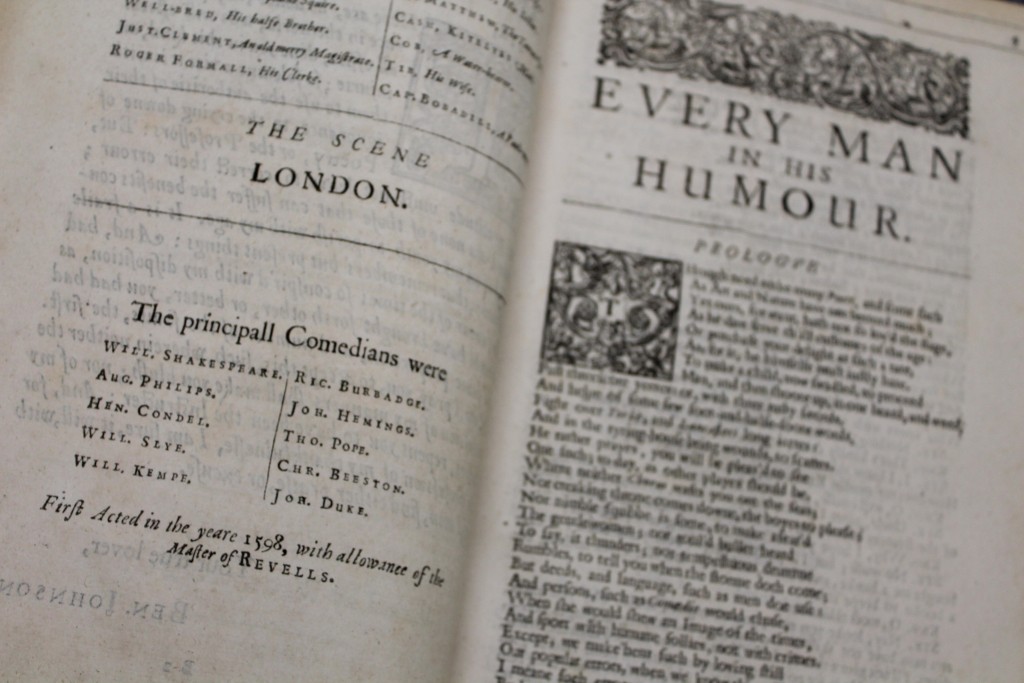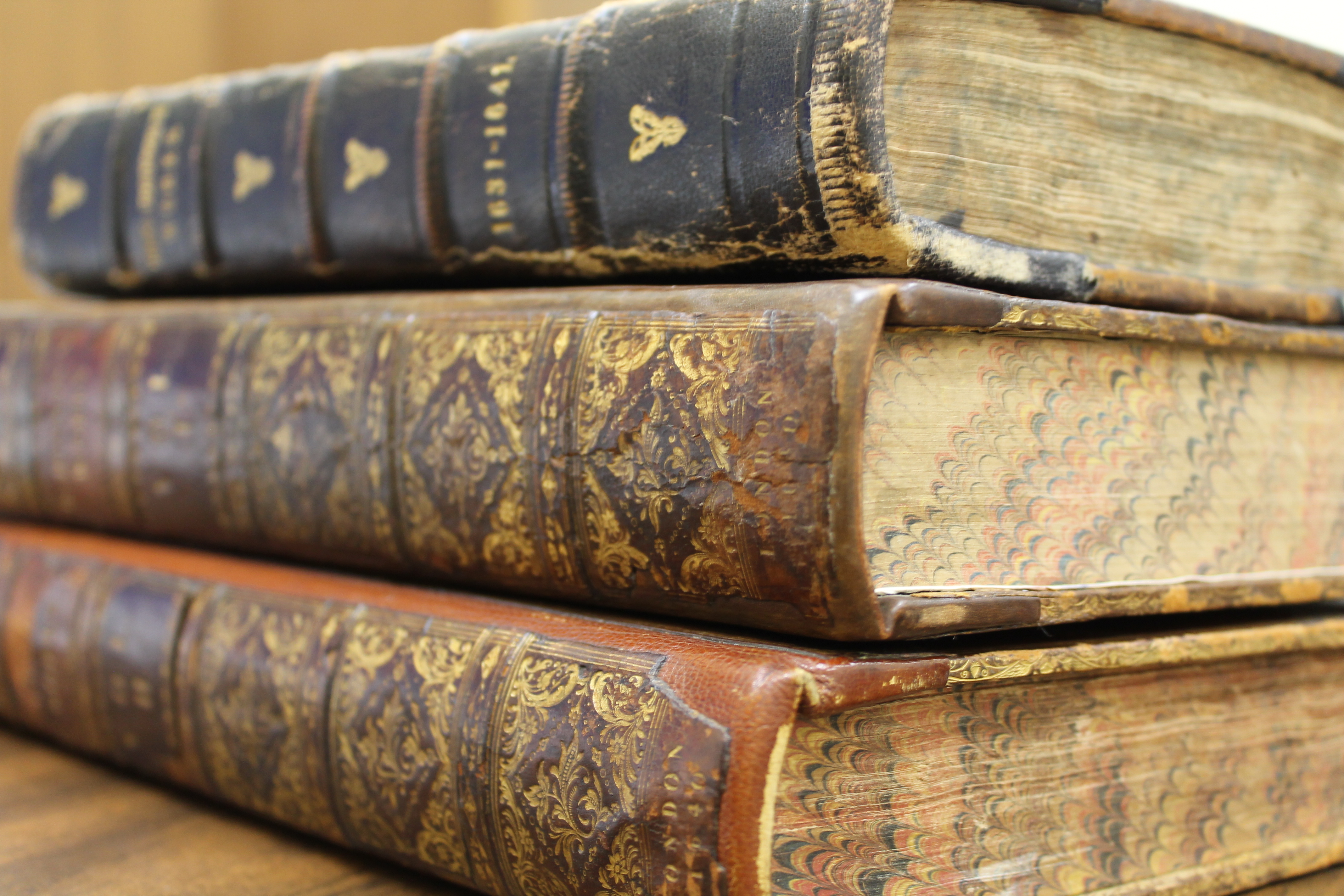 Written by the hand of Ben Jonson, printed with the press of Richard Bishop, and sold at the shop of Andrew Crooke: in 1640, a copy of the second folio of Jonson’s works began its movement into the hands of readers, scholars, and collectors. Now, that copy aids the studies of Shakespeare and Performance (S&P) students at Mary Baldwin, thanks to a generous gift from Elizabeth and Lloyd Lipscomb.
Written by the hand of Ben Jonson, printed with the press of Richard Bishop, and sold at the shop of Andrew Crooke: in 1640, a copy of the second folio of Jonson’s works began its movement into the hands of readers, scholars, and collectors. Now, that copy aids the studies of Shakespeare and Performance (S&P) students at Mary Baldwin, thanks to a generous gift from Elizabeth and Lloyd Lipscomb.
The Lipscombs donated three Ben Jonson books to Mary Baldwin in February: the first and second volumes of his 1640 folio, and a bound collection of his works published from 1631-40. Each bears its own individual peculiarities, from the Jonsonian anecdotes written by an unknown hand in the front of the folio’s first volume, to the unusual red text on the title page of The Devil is an Ass in the 1631-40 volume.
These books build on Mary Baldwin’s early modern book collection, which began several years ago when the Lipscombs gifted a quarto of Beaumont and Fletcher’s A King and No King and a play excerpted from Jonson’s 1616 folio.
Elizabeth Lipscomb taught English courses at Mary Baldwin from 1963-64, during which time she met her husband Lloyd. Elizabeth inherited the antique books, along with a passion for literature, from her father.
“My father, George Burke Johnston, purchased these books in the early 1930s to enrich his graduate studies of Ben Jonson’s poetry,” Lipscomb said.
Johnston’s investment in his studies paid off. He became a professor and dean at Virginia Tech, specializing in the works of Shakespeare and Jonson. He published two books on Jonson’s poetry, and his doctoral dissertation was also based on Jonson’s works. This specialization no doubt grew from his access to the Jonsonian books.

“In later years, he cherished them and shared them with his students as tangible links with Jonson, Shakespeare, and their world,” Lipscomb said. “We hope that they will serve the same dual purposes for all of those in the Shakespeare and Performance program, both enhancing scholarly research and bringing to life images of early modern England.”
S&P Program Director and Professor Paul Menzer uses the gifted Jonson books to teach Shakespeare and Textual Culture, a graduate course centered on the idea that a full understanding of early modern plays can only come with knowledge of their history as printed objects. That knowledge actualizes with a tactile, full contact with printed books from the period.
In his remarks at the February reception held to thank the Lipscombs for their generosity, Menzer noted that the Jonson books represent not only an opportunity for S&P students, but a responsibility for the program.
“These books remind us not just of our continuity with the past but our responsibility to the future,” Menzer said, “for ours are not the last hands that will hold these books. They are not ours to keep, but to hand on.”
Johnston seems to have anticipated Menzer’s sentiment about reconsidering our relationship with the books in a sonnet he wrote, “Jonson Folio, 1640.” The sonnet, inserted at the front of the first volume of the 1640 folio, ends with an enlightening couplet: “I call these volumes mine, but I am theirs; three centuries from now they’ll own my heirs.”


